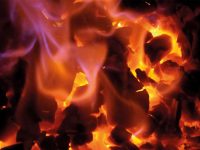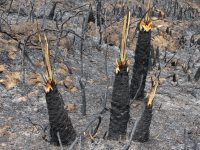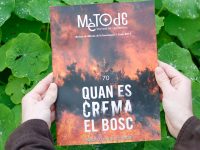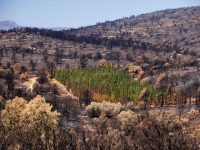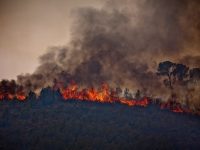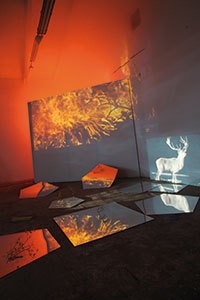
Javier Riera. Making of Fire 1, 2011. Photograph on paper, variable dimensions. / In this Mètode monograph we see through the eyes of the artist Javier Riera (Avilés, 1964). In 2008, with extensive experience behind him, he exhibited at the Museo Nacional Centro de Arte Reina Sofía with various works embodying light and geometry through photography. Javier Riera has used these elements to create works blending light, nature and fire to accompany the articles.
Fire can only occur on Earth. Our planet harbours the three components that make up what is known as the fire triangle: fuel –like vegetation–, heat –in the form of sparks– and oxygen. Furthermore, we are the only species to implement fire. Fire has been around for over 450 million years –since the first plants– and has lived side by side with mankind even longer than agriculture has. In fact, the idea of humanity, of a life in common, started around the fire. Fire has been used by agricultural societies worldwide and is also a cultural and natural part of ecosystems. So why then, since we became an urban society, do we think of it as something negative, a «plague» contributing to deterioration and even desertification? Probably, the answer lies in our ignorance of the role fire actually plays in ecosystems. Mètode takes a look at this issue from a different viewpoint in this International Year of Forests. Here, we review the progress made in our understanding and scientific knowledge of the effects fire has on soil and vegetation, and the monitoring of burnt areas. This monograph aims to give a scientific view of the topic: forest fires.

